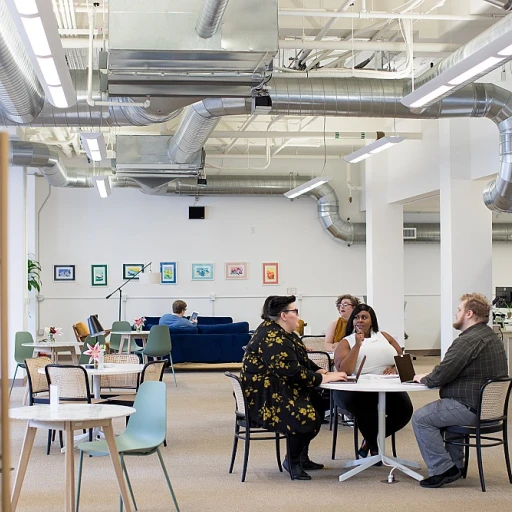
What are the main duties of a substitute teacher
Core Responsibilities in the Classroom
A substitute teacher steps in when the regular teacher is absent, ensuring that the learning environment remains productive and safe. The main duties often follow the lesson plans left by the regular teacher, but flexibility is key. Substitutes must be ready to adapt to different grade levels, subjects, and student needs, including special education settings. The job description can vary from one school to another, but some activities are almost always required.
- Delivering lesson plans: Substitutes provide instruction based on the lesson plan or description template left by the regular teacher. This includes leading classroom activities, guiding discussions, and supporting student learning.
- Classroom management: Maintaining order and a positive learning environment is essential. Substitute teachers use classroom management skills to handle disruptions and keep students focused on their work.
- Supervising students: Whether it’s in the classroom, hallways, or during lunch and recess, substitutes are responsible for student safety and behavior throughout the school day or week.
- Adapting to different settings: From high school to elementary, and sometimes in long term assignments, substitutes must quickly understand the unique needs of each classroom and group of students.
- Reporting and communication: At the end of the day, substitutes often leave notes for the regular teacher, describing what was accomplished and any issues that arose. Accurate reporting is part of the job descriptions and is valued by schools.
In addition to these core tasks, substitute teachers may be asked to support special education students, adjust to unexpected changes in the lesson plan, or take on extra duties like monitoring school activities. The ability to step into any classroom and provide a consistent education experience is what makes this role so important in the school system.
For those preparing for a substitute teaching job or looking to understand the full scope of responsibilities, reviewing a detailed job description can offer valuable insights into the activities required and the skills needed for success.
How substitute teachers adapt to different classroom environments
Adapting Quickly to New Classrooms and Students
One of the most important aspects of substitute teaching is the ability to adapt to different classroom environments. Every school, teacher, and group of students brings a unique set of expectations, routines, and challenges. Substitute teachers are often called in at short notice, which means they need to quickly assess the classroom dynamics and adjust their approach to fit the situation.
- Understanding the lesson plan: Substitute teachers must review and follow the lesson plans left by the regular teacher. If plans are missing or unclear, they need to use their own teaching skills and experience to provide meaningful learning activities.
- Classroom management: Each classroom has its own set of rules and routines. A substitute teacher must observe and reinforce these to maintain a positive learning environment. This may involve adapting to different discipline strategies or adjusting activities required for special education students.
- Building rapport: Establishing a connection with students, even for just a day or week, helps create a respectful atmosphere. Substitute teachers often introduce themselves, set expectations, and show genuine interest in students’ learning.
- Flexibility: The substitute teacher job description often includes covering multiple subjects or grade levels in a single school year. This requires flexibility and the ability to switch teaching styles as needed.
Adapting also means being prepared for unexpected situations, such as changes in the lesson plan, technology issues, or handling a classroom with diverse learning needs. Substitute teachers who demonstrate adaptability are more likely to be called back for long term assignments or high school positions.
For those interested in how adaptability and other key skills are assessed in HR job interviews, you can learn more about the Hogan Leadership Assessment for HR job interviews. This tool is often used to evaluate a candidate’s ability to handle new and challenging environments, which is highly relevant for substitute teaching roles.
Common challenges faced by substitute teachers
Adapting to Unfamiliar Routines and Expectations
Substitute teachers often step into classrooms with little notice, facing a unique set of challenges each day. Unlike regular teachers, substitutes may not have established relationships with students or a deep understanding of the classroom's daily routines. This can make it difficult to maintain the learning environment and ensure that lesson plans are followed as intended.
Managing Classroom Behavior and Engagement
One of the most common difficulties is classroom management. Students may test boundaries with a substitute, especially if they sense the teacher is unfamiliar with the school's rules or the activities required. Maintaining order while still providing a positive learning experience requires strong communication skills and the ability to quickly assess student needs. Substitute teachers must be able to adapt their teaching style to fit the age group, whether it is elementary, high school, or special education.
Handling Incomplete or Missing Lesson Plans
Another frequent challenge is dealing with incomplete or unclear lesson plans. Sometimes, the regular teacher may not have had time to prepare a detailed description template for the day. In these cases, substitutes must use their own judgment to fill in gaps, ensuring that students remain engaged and that learning objectives are met. This requires flexibility and a solid understanding of the subject matter.
Building Rapport in a Short Timeframe
Establishing trust and respect with students in just one day or week is not easy. Substitute teachers must quickly learn student names, understand classroom dynamics, and provide support for diverse learning needs. This is especially true in long term assignments or special education settings, where consistency and relationship-building are crucial for student success.
Navigating School Policies and Procedures
Every school has its own set of policies, from attendance to emergency procedures. Substitute teachers are expected to follow these rules, often with minimal guidance. Being able to quickly learn and apply school policies is an essential skill for anyone in a substitute teacher job.
Balancing Multiple Responsibilities
Substitute teaching is more than just delivering a lesson plan. It involves supervising activities, managing classroom behavior, and sometimes even handling administrative tasks. The ability to juggle these responsibilities while maintaining a positive learning environment is a key part of the job description.
For those interested in how substitute teaching connects to broader HR topics, you might find inspiration in creative ways to celebrate Nursing Home Week. Both roles require adaptability, strong communication, and the ability to create a supportive environment for those in your care.
Essential skills for effective substitute teaching
Key Abilities Every Substitute Needs in the Classroom
Substitute teachers step into a variety of classrooms, often with little notice. To succeed, they need a unique set of skills that go beyond the standard teacher job description. These abilities help maintain a positive learning environment and ensure that students continue their education smoothly, even in the absence of the regular teacher.
- Classroom Management: The ability to quickly establish authority and rapport is essential. Substitute teachers must manage student behavior, keep activities on track, and adapt to the classroom’s existing routines. Strong classroom management skills help prevent disruptions and support a productive day of learning.
- Adaptability: Every school and classroom is different. Substitutes need to adjust to various grade levels, subjects, and special education needs. Flexibility allows them to handle unexpected changes in lesson plans or student needs, whether it’s a high school science class or an elementary reading group.
- Communication: Clear communication with students, other teachers, and school staff is crucial. Substitutes must explain lesson plans, provide instructions, and answer questions in a way that supports student understanding and engagement.
- Organization: Keeping track of lesson plans, activities required, and student progress is part of the job. Good organizational skills help substitutes follow the teacher’s instructions and leave detailed notes for the regular teacher at the end of the day or week.
- Problem-Solving: Challenges can arise at any moment, from missing lesson materials to unexpected student behavior. The ability to think on your feet and find solutions quickly is a valuable asset for any substitute teacher.
- Empathy and Patience: Students may feel unsettled by a change in their learning environment. Substitutes who show understanding and patience can help students feel comfortable and ready to learn, especially in long-term or special education assignments.
These skills are not only important for substitute teaching but are also frequently highlighted in job descriptions and interview questions for education roles. Demonstrating these abilities can set candidates apart in the competitive school job market and help them succeed throughout the school year.
Tips for preparing for a substitute teaching assignment
Getting Ready for a Successful Substitute Teaching Day
Preparation is key for any substitute teacher stepping into a new classroom. Each school and classroom can be different, so being ready for a variety of teaching environments and student needs is essential. Here are some practical steps to help you prepare for a substitute teaching assignment:- Review the Lesson Plans: Before the school day begins, check if the regular teacher has left detailed lesson plans. These plans often include classroom activities required, learning objectives, and special education notes. If plans are missing or unclear, have a few adaptable activities or worksheets ready that fit the grade level and subject.
- Understand the Classroom Management Expectations: Every classroom has its own rules and routines. Familiarize yourself with the school’s policies and the teacher’s classroom management strategies. This helps maintain a positive learning environment and ensures consistency for the students.
- Arrive Early: Arriving ahead of time gives you a chance to review the classroom setup, locate materials, and introduce yourself to neighboring teachers or school staff. This can be especially helpful if you are covering a long term or high school assignment.
- Prepare for Diverse Student Needs: Substitute teachers often encounter students with different learning abilities. Be ready to adjust your teaching style and activities required to support all students, including those in special education programs.
- Bring Essential Supplies: While most classrooms are equipped, it’s wise to carry basic teaching materials like pens, paper, and a whistle for outdoor activities. Having your own resources can help if the classroom is missing something you need for the day’s work.
- Review the Job Description Template: If you are new to substitute teaching, reviewing a job description template can help you understand the expectations and skills required for the role. This can also be useful when answering interview questions for a substitute teacher job.
How substitute teacher duties relate to hr job interviews
Connecting Substitute Teaching Experience to HR Interview Success
Substitute teachers often find that the skills and experiences gained in the classroom are highly relevant when preparing for HR job interviews. The ability to step into a new school environment, quickly understand the lesson plans left by the regular teacher, and manage a diverse group of students mirrors many of the challenges faced in human resources roles. Employers in education and beyond value candidates who can demonstrate adaptability, strong communication, and effective classroom management. These are core elements in a substitute teacher job description and are frequently discussed in interview questions for HR positions. For example, describing how you maintained a positive learning environment or handled unexpected activities required during a school day can provide concrete examples of your problem-solving skills.- Classroom management: Discussing your approach to maintaining order and supporting student learning shows your ability to handle complex situations, a key HR competency.
- Lesson plan adaptation: Explaining how you adjusted lesson plans for different student needs, including special education, highlights your flexibility and understanding of diverse workforces.
- Communication: Sharing experiences of collaborating with other teachers or school staff demonstrates your teamwork and interpersonal skills, which are essential in HR roles.
- Handling challenges: Reflecting on how you managed difficult days or weeks as a substitute teacher can illustrate your resilience and resourcefulness to interviewers.













